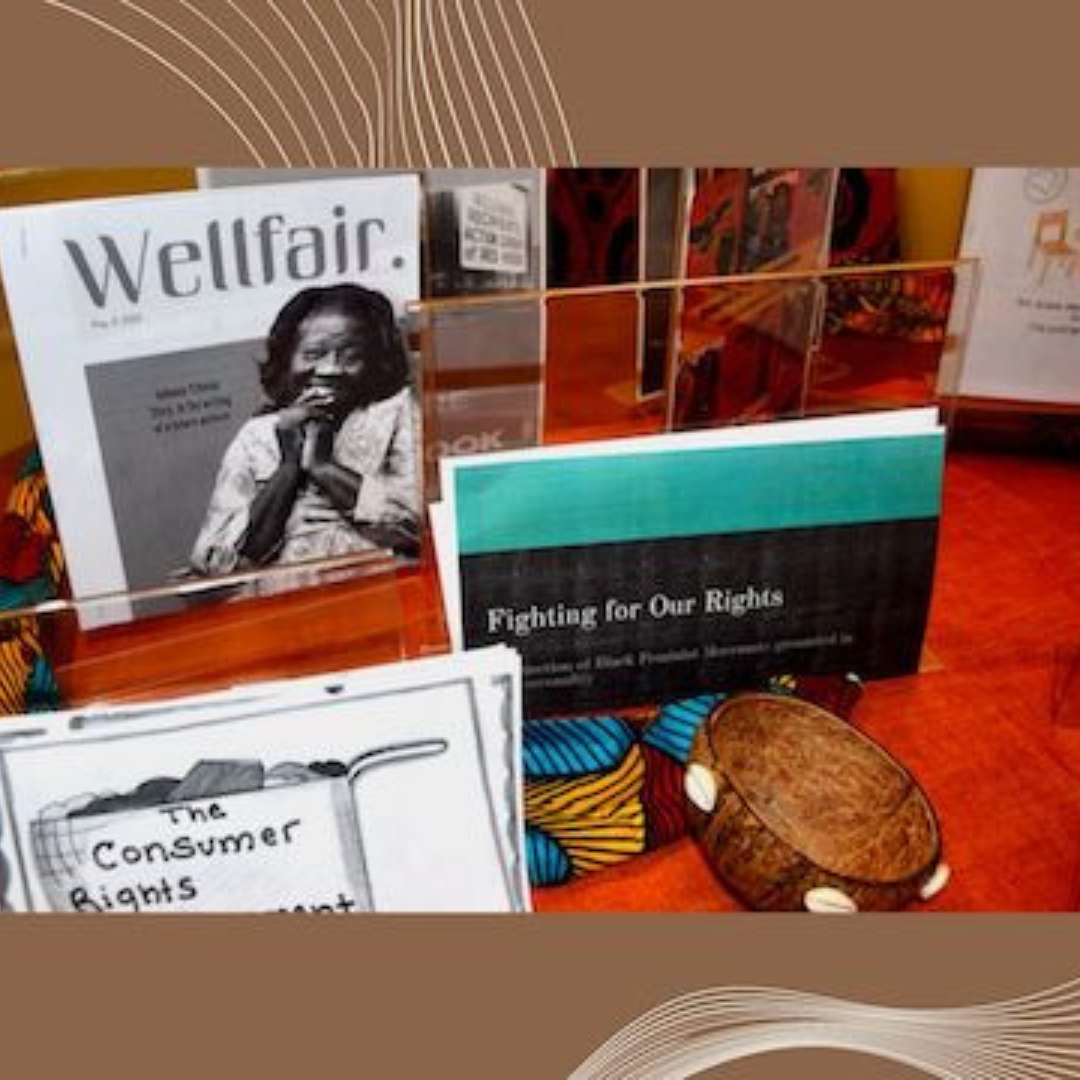
Students Create Zines to Explore Black Women’s History
In last spring’s Sociology 120 course taught by Professor Nicole Brown, PhD, students investigated the power of zines–self-published works–to circulate information on Black women’s social movements. As Brown explains, Black feminists have used these publications as a form of cultural and political expression, for knowledge sharing, community building, advocacy, and organizing outside of mainstream media. The students completed the course by producing their own zines. Centered on such subjects as the Black consumer rights movement, the “Don’t Buy Where You Can’t Work” campaign, the Combahee River Collective, Black Feminist Movement and Welfare Rights Movement, and more, these zines expressed each student’s innovation, creativity, and best of all, understanding.
“I was teaching social movement theory specifically through the study of Black women’s social movements,” said Brown, explaining how SMC’s course differed from those taught by other Sociology Departments. “My area expertise relates to Black women’s social movements and undoing erasures of Black women’s historical contributions to social change, and I wanted to show that you can center Black women’s specific experiences as a different way to understand what a social movement is, as well as social movement theory, stages, types, goals, strategies, and reasons for participation.”
Zines have a rich history in Black social movements. In the late 1800s, Ida B. Wells-Barnett created a pamphlet called “Southern Horrors: Lynch Law in All its Phases” for her anti-lynching campaign. In the 1920s, the Black literary zine “Fire!” drew attention, and later the Black Panther Party used zines to get their message across.
“My hope was that students would see the value in centering Black women’s social movements and utilize that understanding when considering all that we see today,” Brown continued. “Many of the movements we covered during the semester were new to the students. It piqued their curiosity to learn more.”
“For our project, we had to create a zine about a social movement of our choice. I chose the Black Lives Matter Movement because I think it's the most relevant movement of our time,” said senior Psychology major Claudine Ronquillo. “Especially during the time of George Floyd's death, many people my age were involved with protests and social media awareness. I wanted to use what I learned in the course and apply it to a social movement that my generation is heavily affected by.”
“It was interesting to learn that women weren't taken seriously when trying to fight for their rights,” continued Ronquillo. “Many women were the backbone of these movements but didn't get the recognition they deserved. I learned about social movements I've never heard of before, and it made me wonder why we didn't learn about them in previous history classes.”
Brown appreciates the students’ enthusiasm and dedication to their projects. “I was surprised by how deeply the students connected with many of the movements we studied,” said Brown. “I love how they were inspired and empowered by the experiences and activism of the Black women we studied. I was inspired by their commitment to push through dense text, complicated theory and nonlinear connections between past and present.”
“Some of the most beautiful moments during class were when students connected the legacies of previous movements with what we see today,” Brown added. “They really leaned into the experience, and I was so proud of how they represented themselves and the movements they studied…. The zines were very much representations of the parts of the course that left the most significant impressions.”